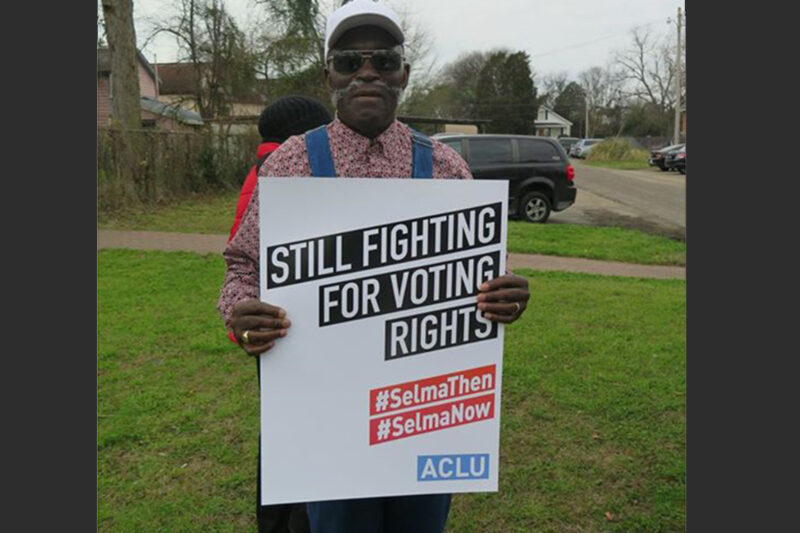
Two years ago, the Supreme Court struck down key protections of the 1965 Voting Rights Act in the Shelby County case. That disastrous decision took away the Department of Justice's primary tool for reviewing potentially discriminatory changes to state and local voting laws in states with a history of discrimination States wasted no time implementing barriers to voting, with announcing, within hours of Shelby County, implementation of its voter ID law. That law had been placed on hold because of the very protections the Supreme Court struck down. Other states including North Carolina, Wisconsin, and Ohio also enacted laws making it more difficult to vote, with the ACLU challenging each one.
Two years later, as we commemorate the 50th Anniversary of Bloody Sunday in Selma, Alabama, and celebrate the 50th Anniversary of the Voting Rights Act, it is time for Congress to legislate and guarantee for all Americans what President Reagan called the , the right to vote
This week, members of Congress in both chambers introduced the , which would update the Voting Rights Act to address the realities of voting discrimination today. Had this been the law over the last few years, it would have prevented many voter suppression efforts. Specifically the bill would:
- Modernize the formula for determining what states need to have voting changes approved by the Department of Justice. Additional states that would be covered based on past actions would be Arizona, Arkansas, Florida, Georgia, Louisiana, Mississippi, North Carolina, South Carolina, and Virginia.
- Ensure that last-minute voting changes won't adversely affect voters. The bill requires jurisdictions to publicly announce all changes to voting laws that happen within 180 days before an election.
- Protect voters from the types of voting changes most likely to discriminate against people of color and those whose first language isn't English, such as relocating polling places and reducing the availability of voting materials in languages other than English.
- Enhance the ability of federal courts to order a state or jurisdiction to have its voting changes pre-approved if the court finds any violation of the Voting Rights Act based on discriminatory intent or result, including those resulting from photo ID laws.
- Allow the Attorney General to send observers to any location deemed to present a substantial risk of racial discrimination at the polls.
- Offer better access to voter registration and voting on and off Indian reservations by giving representatives the power to request additional polling places and through expanded absentee voting.
Congress needs to take real action on the Voting Rights Act. House Judiciary and his Senate counterpart have yet to take action to protect voters from discrimination. Chairmen Goodlatte and Grassley refuse even to hold a hearing on the issue or acknowledge that ongoing discrimination is still occurring nationwide.
To make sure that Chairman Goodlatte and Congress receive the message loud and clear that their constituents and supporters of voting rights want Congress to act, the ACLU today will join hundreds of others to in Representative Goodlatte's district. We are commemorating the anniversary of Shelby County and sending a strong message that Congress must act now!
To join the rally virtually between 12-3pm EST on Thursday June 25 and join the ACLU's call to Congress to repair the Voting Rights Act, tweet your this message telling him or her to #RestoreTheVRA.
Since #SCOTUS gutted the Voting Rights Act two years ago, voting discrimination has become harder to stop. Congress: Time to #RestoreTheVRA!
Yes, , racial discrimination in voting still happens today. Please hold a hearing + help move efforts forward to



